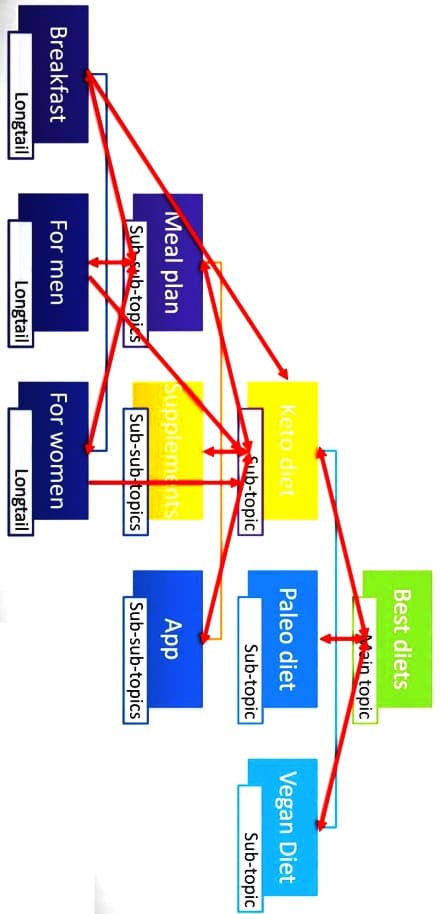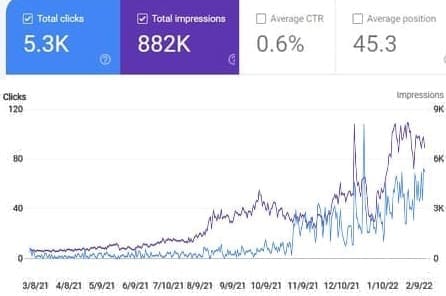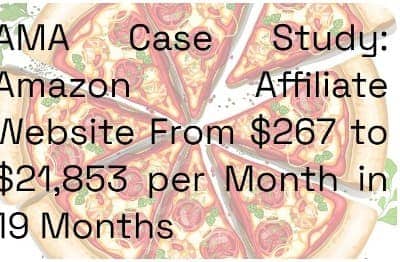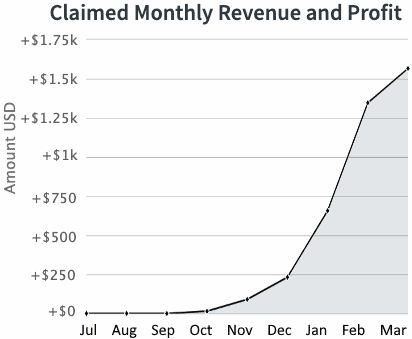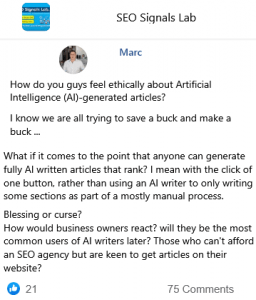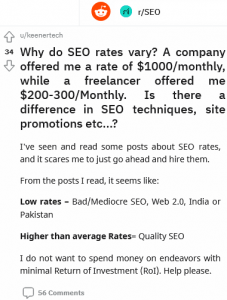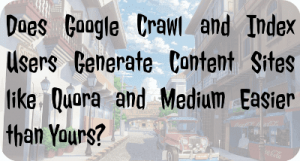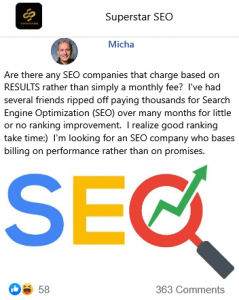Mike's Tuesday Tips:
Improving Your Organic CTRs.
I see a lot of people talk about improving their organic CTRs to get more traffic from the SERPs, and while there are some really good tips out there, I also see a lot of silly ideas.
One of the more silly ideas I see is to create content that is better than the content of your competitors. Create content that engages your audience, yadda yadda yadda… The problem with that idea is if nobody ever clicks over to read your content, how would they know it is better?
Here are 4 solid and simple tips for improving your click through rates from the SERPs. (Yep, I'm going against the grain with an even number here.)
1- First, boost your rankings. With very few exceptions, it does not matter how great of a title tag you write. The page ranking above you is going to get more clicks than you are.
I know someone is going to argue with me about that, but it is the truth.
Now, can you get a few more clicks out of your current position with a more enticing title? Sure, but you are still going to get less traffic than the pages outranking you.
If you want better click through rates, rank higher.
2- Use schema where you can. Google will often show information it picks out from schema markup in the search results. This can make your listing stand out from others.
Not schema related, but an extreme example of this was when Google was using authorship and showing author photos in SERPs. If you were in a SERP where nobody else or very few listings were using authorship, you could drastically boost your CTRs. This was one of the rare cases where you could actually get a better CTR than pages ranked ahead of you.
Today, things like review stars, inventory counts, and event listings can all show up in the SERPs and make your listing stand out.
3- Write a good meta description… or don't write one at all.
There are only two things that I focus on in meta descriptions. I try to include primary keywords. I do that because Google will often bold words and closely related words from your search query, making it stick out to searchers.
The second thing I focus on is a call to action. If someone actually bothers to read the meta description, I want to give them a reason to click on my URL instead of someone else's.
Or don't write one at all. I do this most of the time. Google will often rewrite meta descriptions anyhow, so spending hours on your site to write the perfect meta descriptions can prove pointless.
The real reason I often leave meta descriptions blank is that pages often rank for tons of search queries and you cannot write a meta description to match them all.
I shared an example in a private group of mine two weeks ago where a client on a single URL had received traffic from over 500 different search queries. Many of them were closely related, but you can't possibly write a meta description for all of them.
Instead I let Google pick out a meta description that it feels matches the search intent, and they have gotten pretty good at it.
This is especially effective for really long content.
4- Write captivating headlines.
Before you spend hours trying to craft the perfect title tags, go back to point #1. If you want to boost your CTRs, rank higher.
A great headline certainly can increase your CTRs, but only marginally. On top of that, with Google's latest update around title tags, they are changing them to whatever they want with increased frequency.
I have not tested it myself, but there is a fair amount of data out there right now suggesting that if your title tag and H1 tag match up, the frequency of your title tag being rewritten decreases.
All of that being said, here is what I focus on for title tags.
First, I want to make sure that it matches the search intent. If the page is about where to get the lowest rates for car insurance, then I'm going to use something like "Find The Lowest Rates For Car Insurance".
Second, I add some sort of emotional element to the title.
If the page is about car insurance for new drivers, think about what new drivers want. They want to be driving, right?
Lowest Car Insurance Rates for New Drivers – Be Driving Today
Car Insurance For New Drivers – Get a Quote – Drive Today
Your keywords should be at the front of the title tag. If you are adding your brand name to the title, put that at the end. The only exception I would make to that is if you have a really well-known and recognized brand.
An argument could be made that you may get more clicks because of people recognizing the brand name. Even then, I'm probably still going to stick it at the end.
Amazon adds their brand name on a lot of their product pages. Does it work? Well, Jeff Bezos went to space so… ¯_(ツ)_/¯
#TheSEOPub
69 👍🏽9 💟79
📰👈
hi,mike, do I need to give a bunch of long tail keywords, and write articles for each keyword? Or write a long article, including a large number of long tail keywords, how to do better
I prefer to cover topics in a bit more detail. I'm not a fan of writing one piece of content for each longtail keyword I uncover.
Daniel
hi,mike,Do I need to write a lot of articles every day in order to have a large number of keywords in SEMrush?
Most of the sites I work on rarely publish articles. Some haven't published a new article in a year. Do what is right for your site.
Why would you care about how many keywords show up in SEMrush?
Daniel » Mike
Maybe there is something wrong with my cognition. I have established a website for 6 months and there is no traffic on the website. I have published hundreds of products, but I see that the website has only more than 30 keywords in SEMrush, so I think the website has not published enough articles. I am a little confused, What I think is: less website traffic — "because there are few articles on the website –" so publish more articles with long tail keywords — "increase exposure –" increase the click of keywords. Is my idea wrong
Mike ✍️ 🎩 » Daniel
I don't understand why you care what shows up in SEMrush. If it is your site, you should be looking at Search Console, not SEMrush.
Other than that, just publishing content is usually not enough to rank a website. Links play a significant role.
Lori Appleman 🎓 » Daniel
For a new store an over-reliance on SEO is going to be the kiss of death. If it's your own brand, people have to KNOW the brand to trust it and buy. If you sell other brands, why buy from you instead of a better known site? So these questions must be answered. Ranking product pages is very tough if you have competition in most niches. SEO that you can get faster is not buyer intent. So…you must complement SEO with other marketing. Ads drives traffic best for new stores. Then you can work on social, email, influencer, etc. Affiliate is a waste until your product and site is known and trustworth. And if your articles aren't fresh and interesting, they may never rank.
Lissandra
Great ideas – thank you so much. I wrote everything down 🙂
One question: how exactly do you boost your rankings? this expression seems so general for me since I am not that familiar with SEO🙂
Effective SEO, at a high level, consists of having a web site that: loads fast (according to web.dev), has deep content about your products and services, extensively cross-links internally, and has inbound links from quality external websites. Are you being asked to perform SEO in addition to what you already do for your company?
📰👈
Ammon: Click Through Rate (CTR) in SERPs has Zero Effect on the Scoring of the Site
They said that a High Bounce Rate is Not Always Bad
Ammon: Google don’t Care about Silos, or Pages Only Linking to Other Pages on the Same Topic, Same Website
How Insanely Valuable YouTube is for Website Rankings!
An SEO Case Study Improved 30 Percents of Prev Traffic in 3 Months on an eCommerce Website


